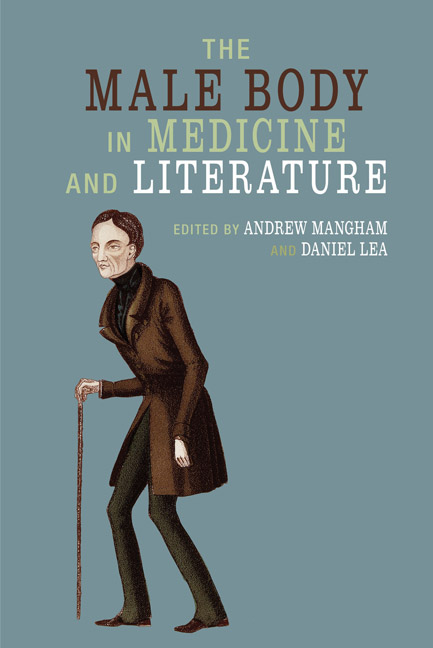Introduction
Summary
The essays in this volume explore the male body as the locus of intersecting social, political, cultural and bio-medical discourses. Sometimes that body is sited within, and acts from, the position of patriarchal privilege, but more often these essays investigate how it works counter to any such cohesive location. It emerges as a damaged figure: diseased, deconstructed and often failing to perform. The resulting friction between what is and what is expected produces readings that interrogate male embodiment across private and public spheres in which the body is rarely the actant determining its own reading; rather, it is acted upon by a series of epistemological and disciplinary practices that variously reorientate its identity within and against versions of medical knowledge.
What is often surprising about the male bodies we find in medicine and literature is that they rarely enjoy what Simone de Beauvoir called the status of the ‘first sex’. The focus of her feminist study The Second Sex (1949) was, of course, the position of women as defined not in terms of themselves but as relative to man. Yet her view suggests something of men's bodies that is very difficult to substantiate:
Woman has ovaries, a uterus: these peculiarities imprison her in her subjectivity, circumscribe her within the limits of her own nature. It is often said that she thinks with her glands. Man superbly ignores the fact that his anatomy also includes glands, such as the testicles, and that they secrete hormones. He thinks of his body as a direct and normal connection with the world, which he believes he apprehends objectively, whereas he regards the body of a woman as a hindrance, a prison, weighed down by everything peculiar to it. ‘The female is a female by virtue of a certain lack of qualities,’ said Aristotle; ‘we should regard the female nature as afflicted with natural defectiveness’.
As will be demonstrated in the essays that follow, there is plenty of historical evidence that men's anatomies have been considered as no less of a ‘hindrance’ than women's. At no point in history, indeed, has man been allowed to forget his glands: they have been celebrated by the Ancient Greeks, lamented by early Christians, studied by the Victorians and subjected to various enhancement practices in the twenty-first century.
- Type
- Chapter
- Information
- The Male Body in Medicine and Literature , pp. 1 - 14Publisher: Liverpool University PressPrint publication year: 2018



